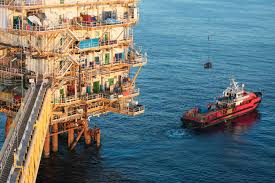The Ghana National Petroleum Corporation (GNPC) has unveiled a roadmap to reverse the decline in oil production and revitalise the country’s upstream petroleum sector.
The roadmap, made known by the Acting Chief Executive Officer of GNPC, Kwame Ntow Amoah, is anchored on innovation, investment and sustainability to drive long-term growth of the upstream petroleum industry.
Speaking at the 8th Africa Energies Summit, Mr Amoah said the corporation was incorporating Artificial Intelligence and digital tools to improve reservoir management and optimise drilling operations.
He added that advanced seismic technologies such as 4D acquisition and Ocean Bottom Node systems would be deployed to improve subsurface imaging while non-seismic tools such as satellite imagery and Airborne Transient Pulse surveys would help de-risk exploration, especially in the underexplored Voltaian Basin.
In addition to technological advancement, the acting CEO said investor-friendly policies were being rolled out to restore confidence in the country’s upstream space. “We need to adopt a new mindset — one that balances strategic investment, technological innovation and sustainable practices, Mr Amoah said.
Barrels of oil
Delivering a keynote address on the theme: “Taking Ghana to the Next Level: Advancing Oil & Gas Exploration and Production”, Mr Amoah said GNPC’s new upstream agenda seeks to arrest a downward trend in oil production, which had plummeted from a high of 195,750 barrels per day in 2019 to approximately 110,500 barrels per day as of last year.
The acting CEO identified declining field productivity, limited exploration activity and policy challenges as key contributors to the drop.
“Achieving sustainable growth in Ghana’s oil and gas sector requires bold thinking and a willingness to embrace innovation,” Mr Amoah told a packed audience of policymakers, industry executives and global energy stakeholders.
Multi-operator collaborations
Mr Amoah argued that stable fiscal policies and regulatory clarity are essential to attract both local and international investors.
He called for stronger partnerships between oil companies, service providers and technology firms, urging joint ventures and the consolidation of marginal fields into shared infrastructure to cut costs and improve efficiency. “Multi-operator collaborations are key to unlocking Ghana’s full upstream potential,” he stated.
Mr Amoah emphasised that GNPC, under the guidance of the President and the Ministry of Energy and Green Transition, is poised to become a centre of excellence in Africa’s oil industry. The corporation will lead efforts to build local capacity and prioritise indigenous expertise while aligning upstream activities with environmental stewardship and global decarbonisation trends.
“Resetting our upstream agenda is not just about boosting production — it’s about creating a more resilient and sustainable energy future for Ghana,” he concluded.
The session ended with a call to action for stakeholders to support GNPC’s strategic vision, which places Ghana’s energy security and long-term development at the heart of its renewed upstream policy direction.
